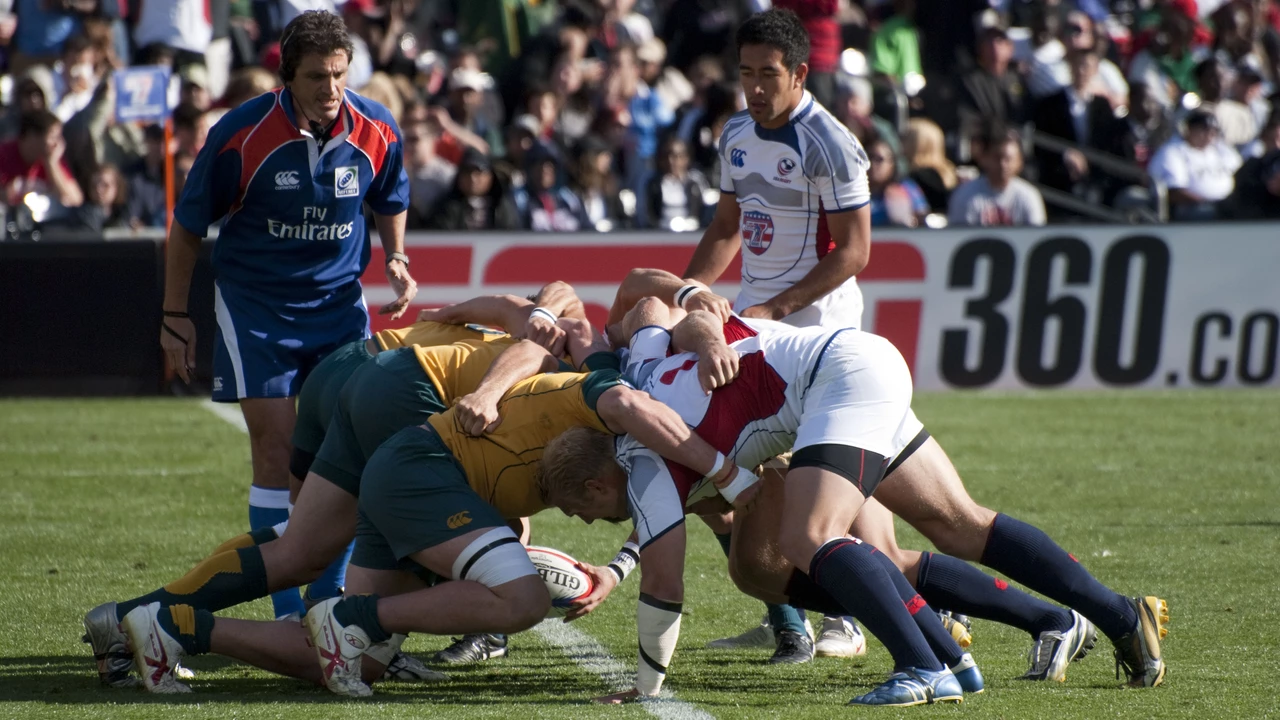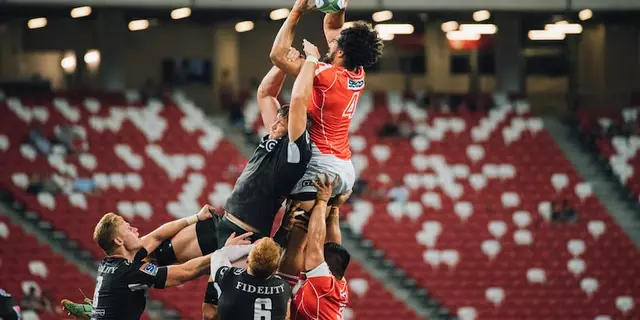Why don't we play rugby in America?
The Historical Lag
As we go down this rabbit hole of why rugby isn’t widely played in America, we first need to wander through the cobblestone paths of history. Keep in mind, I'm certainly no historian, but I've heard a thing or two about the journey of sports which helps me ponder over this conundrum. You see, America and rugby have an odd relationship, with a hint of an historical lag. Rugby, which originated in England in the early 19th century, made its way to the States during the late 1800s. However, the sport never really took off. The historical lag is particularly evident when you compare rugby's popularity in other former British colonies like Australia, New Zealand, and South Africa, where it took root faster and grew stronger.
Now, it's interesting to know that in its early days, rugby was even played at universities such as Harvard and Yale, which remain hallowed grounds for American football today. However, rugby’s glory was short-lived. External factors like the Civil War effectively put a damper on the growth of the sport. Additionally, the lack of a robust structure where local rugby clubs could foster their talent led to a significant slowdown in the popularity of the sport. This, combined with America's growing fascination with homegrown sports like baseball and basketball, left rugby on the back burner. So my friends, that's one reason, looked through the lens of history: simply a case of bad timing it seems.
The Leverage of Familiarity
Painting a broader stroke here, we can also argue that rugby never really made it in America because it was fighting a losing battle against the already established and familiar sports. Honestly, it’s human nature to gravitate towards the familiar, that comforting feeling of continuity. Americans had their favorites such as baseball, basketball, and later American Football. These were sports they understood, sports they followed fervently, and sports they loved. Trying to veer away from these time-honored traditions to adapt to the dramatic stylings and heavy physical contact of rugby seemed a bit far-fetched, don't you think?
Moreover, rugby's emphasis on continuous, fast-paced action with few pauses hardly resonated with the American audience who were used to the frequent timeouts in American football and the slower pace of baseball. The scuffle of play in rugby, as thrilling as it is for some of us, seemed alien and a tad chaotic to many. The leverage of familiarity is a powerful one, and sadly, rugby found it hard to break the stranglehold of the sports that America already loved and celebrated.
The Complexity Conundrum
No offense intended to my American friends, but one common claim I often hear is that rugby is way more complex than the sports we're accustomed to, like American football. Firstly, I would like to point out that just because it's different doesn't mean it's more complicated. However, I do see where this perception is coming from. For beginners, rugby looks like a scramble on the field with all its handoffs, rucks, mauls, and scrums. It might appear to a novice that there's a complicated secret language that players are communicating in. But, isn’t that the same for American football with all of its complex plays?
While it's true that the rules of rugby may seem daunting at first, it’s also true for any sport that one is unfamiliar with. Remember the first time you watched a game of baseball or tried to understand American football? Confusing, wasn’t it? A key point many seem to forget is that, similar to these games, understanding rugby also requires spending some time learning its rules and watching a few games. Nothing worthwhile comes easy, and learning a new sport is no different. So, while the perception of complexity forms a barricade for rugby's popularity, it's not some insurmountable blockade.
Marketing and Media Spotlight
Now, let's face the cruel reality. The role of media and marketing in shaping a sport's destiny in a particular country cannot be ignored. To put it plainly, the American media and sports setup never rallied behind rugby as it did with games like baseball, basketball, and American football. These popular sports have, over the years, enjoyed hours of broadcast time, extensive endorsements, and contracts that have played a significant role in shaping American sports culture.
When it comes to promoting a sport, the power of media and marketing cannot be understated. From catching the eye of potential players to creating a fan base, the exposure offered by media can turn the tide for a sport. While games like American football soared to new heights with the leverage of strong media support, rugby remained fairly obscured in the background. And without media coverage, rugby's star players and thrilling moments never really got the chance to shine in the national spotlight, which is a pity, isn't it?
The Honey and Vinegar of Rugby Culture
Taking a closer look at the culture intrinsic to rugby, we can detect a mix of, shall we say, honey and vinegar. On the sweet side, those who have played it or are loyal fans know that, ironically, it's a gentleman's sport with an emphasis on camaraderie, respect, and sportsmanship. The idea is to hit hard on the field, and share laughs and stories off it. Sounds great, right? However, on the vinegary side, it has also been seen as a sport reserved for the elite, particularly during the early days of American rugby. This somewhat exclusive air may have alienated plenty who could have become fans or players.
Furthermore, the physical demands and fierce competition of the game could be off-putting for many. Rugby could indeed be a tough sell to parents concerned about safety. Even though safety precautions and techniques are emphasized, one can’t deny that rugby doesn't top the list when it comes down to ‘safe sports’. Nonetheless, considering the growing concern over concussion risks in American football, who knows, rugby might just have a fighting chance after all.
The Landscape of Change
Despite all these reasons hovering around why rugby has been a slow burn in America, there's a glimmer of hope. We're starting to see a shift in the tide, folks. Major League Rugby (MLR), launched in 2018, is finally giving rugby some long-awaited limelight. Sporting impressive talent and a rapidly increasing follower base, MLR might be rugby's trump card in America. Who’s ready for the underdog fightback?
Moreover, American universities are increasingly recognizing rugby as a varsity sport, giving it a much-needed platform to attract potential talent. Excitingly, young athletes are showing an interest in the sport and being part of a community that embraces team spirit over individual glory. It’s heartening to see these athletes embracing a sport that I, rather dearly, love and advocate for.
Remember, it took soccer a while to grip the collective consciousness of Americans, but today it stands as one of the most played sports in the country. Perhaps with more exposure, better organizing structures, and positive marketing, rugby will finally be able to secure a well-deserved place in America’s sporting landscape. Might we see the day when rugby stripes across America become as iconic as the baseball diamond? Only time can tell, my friends, only time can tell.









